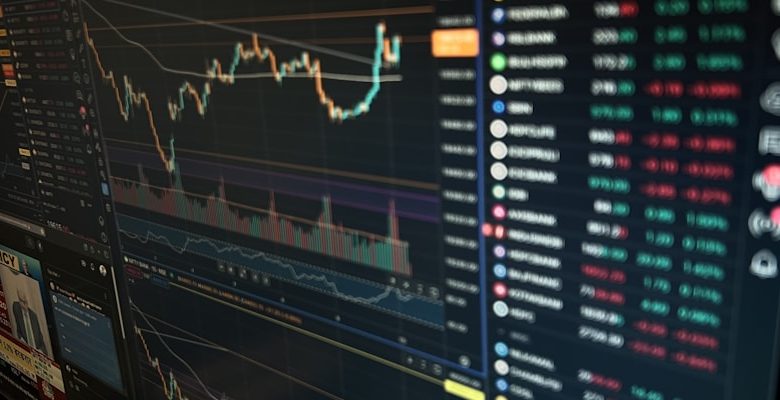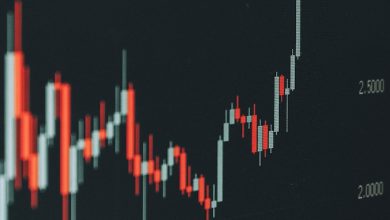Understanding the Role of Market Makers in Cryptocurrency Trading

- Introduction to market makers in cryptocurrency trading
- Exploring the importance of liquidity in the crypto market
- Strategies used by market makers to facilitate trading
- The impact of market makers on price stability in cryptocurrencies
- The role of market makers in reducing volatility in trading
- Challenges and risks associated with being a market maker in the crypto space
Introduction to market makers in cryptocurrency trading
Market makers play a crucial role in the world of cryptocurrency trading, providing liquidity and ensuring smooth market operations. These entities are responsible for creating a market for a particular cryptocurrency by continuously buying and selling that asset. This process helps to narrow the spread between buy and sell prices, making it easier for traders to execute their orders quickly and at a fair price.
One of the main advantages of market makers is their ability to stabilize prices, preventing drastic fluctuations that could deter investors from participating in the market. By constantly quoting both buy and sell prices, market makers help to reduce volatility and create a more predictable trading environment. This, in turn, can attract more participants and increase overall trading volume.
In addition to providing liquidity and price stability, market makers also play a key role in promoting market efficiency. Their presence helps to ensure that there is always a counterparty available for traders looking to buy or sell a particular cryptocurrency. This not only facilitates smoother transactions but also helps to prevent price manipulation and other forms of market abuse.
Overall, market makers are essential actors in the cryptocurrency trading ecosystem, enabling efficient and orderly markets to function. By facilitating trading activities, providing liquidity, and promoting price stability, these entities contribute to the overall health and growth of the cryptocurrency market. Understanding their role and importance is crucial for anyone looking to participate in this dynamic and fast-paced industry.
Exploring the importance of liquidity in the crypto market
In the world of cryptocurrency trading, liquidity plays a crucial role in determining the efficiency and stability of the market. Liquidity refers to the ease with which a digital asset can be bought or sold without significantly impacting its price. It is essential for market participants to have access to liquid markets to execute trades quickly and at fair prices.
High liquidity in the crypto market is important for several reasons. Firstly, it reduces the risk of price manipulation by large traders or whale investors. When a market is illiquid, a single large trade can cause significant price fluctuations, making it easier for manipulators to influence the market. By contrast, in a liquid market, large trades have less impact on price, making it more difficult for manipulators to control the market.
Secondly, liquidity provides market participants with the ability to enter and exit positions easily. In a liquid market, traders can buy or sell large quantities of assets without significantly affecting the price. This allows them to enter and exit trades quickly and at fair prices, increasing the efficiency of the market.
Furthermore, liquidity is essential for the overall health of the market. It attracts more participants, including institutional investors, who require liquid markets to execute large trades. Increased participation leads to higher trading volumes, tighter bid-ask spreads, and lower transaction costs, benefiting all market participants.
Overall, understanding the importance of liquidity in the crypto market is crucial for traders and investors looking to navigate the volatile world of cryptocurrency trading. By ensuring access to liquid markets, market makers play a vital role in maintaining market stability and efficiency, ultimately benefiting the entire ecosystem.
Strategies used by market makers to facilitate trading
Market makers play a crucial role in facilitating trading in the cryptocurrency market through various strategies. These strategies are designed to provide liquidity and ensure smooth transactions for buyers and sellers. Some of the key strategies used by market makers include:
- Providing bid and ask prices: Market makers continuously display bid and ask prices for a particular cryptocurrency, creating a market for traders to buy and sell. This helps in maintaining a balanced market and allows for efficient price discovery.
- Managing order flow: Market makers actively manage order flow by adjusting their bid and ask prices based on market conditions. By doing so, they help prevent large price swings and stabilize the market.
- Absorbing excess supply or demand: Market makers are willing to buy or sell assets from their own inventory to absorb excess supply or demand in the market. This helps in maintaining a stable market environment.
- Providing price stability: Market makers play a crucial role in providing price stability by ensuring that there are always buyers and sellers in the market. This helps prevent sharp price fluctuations and enhances overall market efficiency.
- Arbitrage trading: Market makers engage in arbitrage trading by taking advantage of price differences between different exchanges. This helps in aligning prices across different platforms and ensures efficient trading.
Overall, market makers use a combination of these strategies to facilitate trading in the cryptocurrency market and ensure a liquid and efficient marketplace for all participants. Their presence is essential in maintaining market stability and providing traders with the opportunity to buy and sell assets at fair prices.
The impact of market makers on price stability in cryptocurrencies
Cryptocurrency market makers play a crucial role in maintaining price stability in the volatile crypto markets. Market makers are individuals or entities that provide liquidity by buying and selling assets on exchanges. By continuously quoting both buy and sell prices, market makers help to narrow the spread between bid and ask prices, which in turn reduces price volatility.
Market makers use their capital to facilitate trading and ensure that there are always willing buyers and sellers in the market. This continuous presence of liquidity providers helps to prevent drastic price swings and allows for smoother price discovery. Without market makers, the cryptocurrency markets would be much more susceptible to manipulation and sudden price movements.
Market makers also help to improve market efficiency by reducing the impact of large buy or sell orders on prices. By providing liquidity, market makers allow traders to execute orders at more favorable prices and with lower transaction costs. This increased efficiency benefits all participants in the market, from retail traders to institutional investors.
Overall, market makers play a vital role in creating a more stable and efficient trading environment for cryptocurrencies. Their presence helps to mitigate price volatility, improve liquidity, and ensure fair market conditions for all participants. Understanding the impact of market makers on price stability is essential for anyone looking to trade or invest in cryptocurrencies.
The role of market makers in reducing volatility in trading
Market makers play a crucial role in reducing volatility in trading by providing liquidity and maintaining orderly markets. These entities ensure that there are always buyers and sellers available for assets, which helps stabilize prices and prevent drastic fluctuations. By continuously quoting both buy and sell prices, market makers create a more efficient trading environment that can absorb large orders without causing significant price swings.
One of the main ways market makers reduce volatility is by narrowing the spread between bid and ask prices. This tightens the trading range, making it less likely for prices to experience sudden and dramatic changes. Additionally, market makers can step in during times of high volatility to buy or sell assets, helping to restore balance and prevent panic selling or buying.
Moreover, market makers use sophisticated trading algorithms and technology to quickly adjust their quotes in response to market conditions. This agility allows them to adapt to changing circumstances and maintain liquidity even during turbulent times. Ultimately, the presence of market makers in the cryptocurrency market helps to create a more stable and efficient trading environment for all participants.
Challenges and risks associated with being a market maker in the crypto space
One of the primary challenges that market makers in the cryptocurrency space face is the high volatility of the market. Cryptocurrency prices can fluctuate rapidly, making it challenging for market makers to maintain a stable inventory of assets. This volatility can lead to significant losses if market makers are not able to adjust their positions quickly enough to account for price changes.
Another risk associated with being a market maker in the crypto space is the potential for market manipulation. Because cryptocurrency markets are relatively unregulated compared to traditional financial markets, there is a higher risk of price manipulation by large traders or groups of traders. Market makers must be vigilant to ensure that they are not inadvertently participating in or facilitating any manipulative practices.
Additionally, market makers face the risk of counterparty default. When executing trades, market makers rely on counterparties to fulfill their end of the transaction. If a counterparty fails to deliver the agreed-upon assets, the market maker can suffer financial losses. To mitigate this risk, market makers often work with reputable counterparties and set strict risk management protocols in place.
Furthermore, market makers in the crypto space must contend with the challenge of maintaining liquidity in illiquid markets. Cryptocurrency markets can be fragmented, with assets trading on multiple exchanges with varying levels of liquidity. Market makers must carefully manage their positions to ensure that they can provide liquidity when needed, even in markets with low trading volumes.
In conclusion, while being a market maker in the cryptocurrency space can be lucrative, it is not without its challenges and risks. Market makers must navigate the high volatility of the market, guard against manipulation, mitigate counterparty default risks, and manage liquidity in illiquid markets to be successful in their role. By staying informed, exercising caution, and implementing robust risk management practices, market makers can navigate these challenges and thrive in the dynamic world of cryptocurrency trading.



